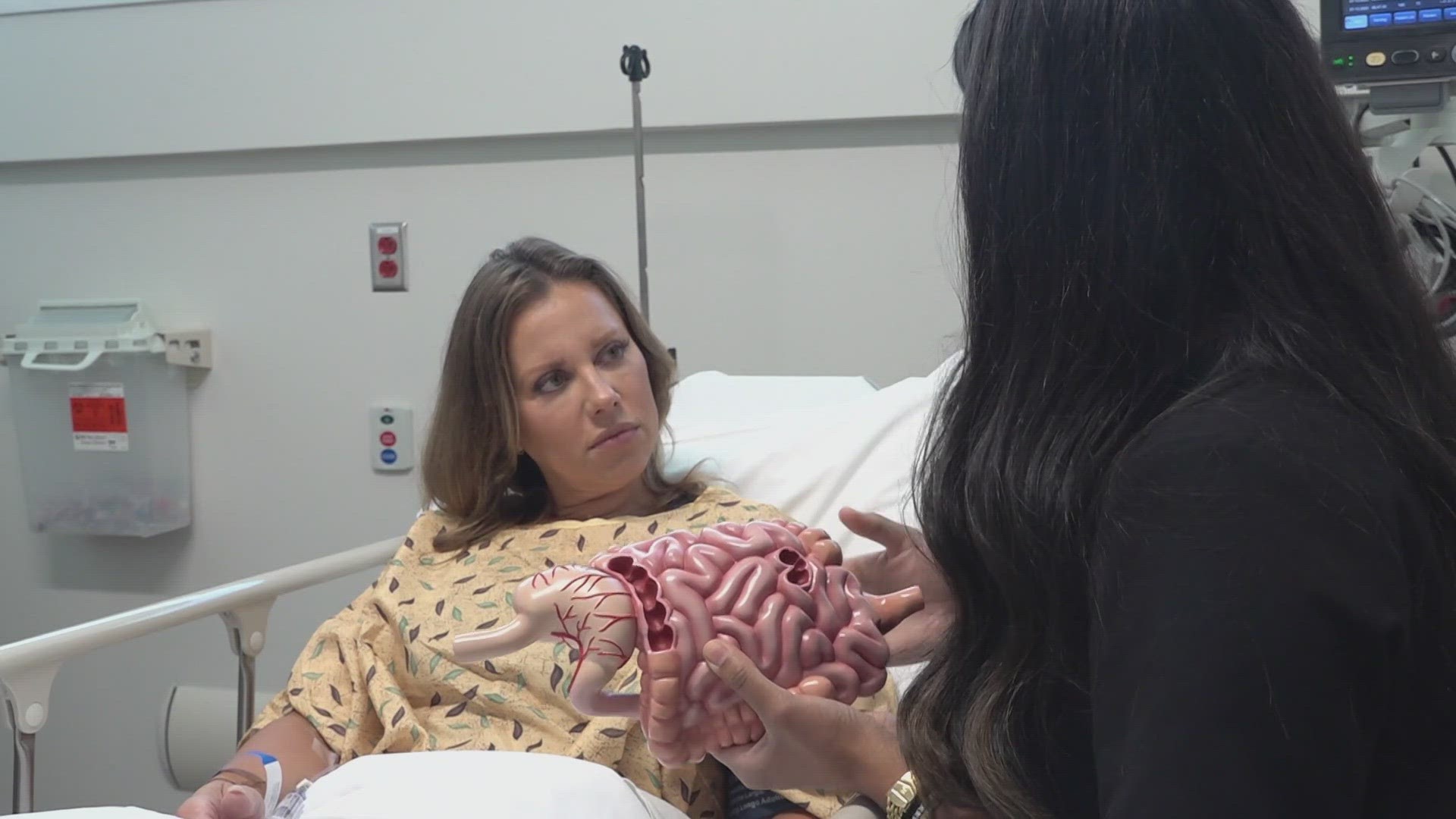KNOXVILLE, Tenn. — Colon cancer rates are on the rise among people under the age of 50. It's an alarming trend that prompted health experts to change the age recommendation for colonoscopy screenings to 45.
It's news 10News Anchor Abby Ham has followed closely because colon cancer runs in her family. When urged by her primary care physician to get a colonoscopy, she listened.
Abby is 43 years old. Her grandmother had colon cancer twice, and Abby had an odd test result at her yearly physical. That's when her primary care doctor urged her to get a colonoscopy.
Abby immediately made the appointment with Dr. Tejal Mistry at Gastrointestinal Associates.
"If you have a family history or inflammatory bowel disease or other causes, you can discuss that with your physician and you may get screened earlier than 45," says Mistry.
Screenings are recommended earlier if your family history involves your mom or dad.
"Guidelines say that first-degree relatives you start at 40 or 10 years earlier from when your first-degree relative was diagnosed, whichever one comes first," says Dr. Mistry.
Colorectal cancer is the second-most common cause of cancer deaths in the U.S. according to the American Cancer Society. Numbers show this year alone more than 153,000 people will be diagnosed with colon cancer, and a third won't survive.
That's why screenings are so important, and the whole process is much easier than you may realize.
We have all probably heard about the prep. The whole process is less than glamorous. You start a liquid diet the day before and then drink a ton of water and take a lot of pills the night before. Then the morning of it's more pills and more water.
The day of is very easy. Check-in. Change clothes. Chat with your doctor. Then some good meds and the the colonoscopy. It's very simple and not at all as scary as Abby once thought.
"My end result was a best-case scenario. No signs of polyps or cancer. But had it gone differently, I would have detected any issues early, which is exactly what you want," said Abby.
"You're getting screened to see, 'Do I have the cancer or not?' Yes, that's what a colonoscopy is for, but a huge reason is prevention. We take out the precancerous polyps, we take out polyps and you follow up three to five to seven years," said Dr. Mistry.

